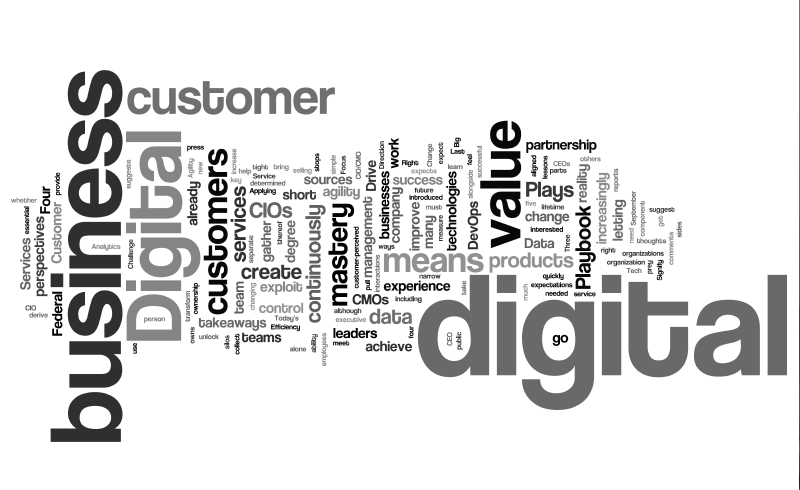Four Lessons In Digital Business

Last September I introduced the first in a series of short perspectives on the Federal Digital Services Playbook. Now that all five perspectives are published …
- Applying The US Digital Services Playbook
- The Four Digital Customer Experience Plays Signify A Big Step In The Right Direction
- Three Digital Leadership Plays Challenge CIOs To Drive Change In Tech Management
- Four DevOps Plays Focus On Digital Agility
- Drive Digital Service Transparency And Efficiency With Data And Analytics
… I thought I’d take the opportunity to suggest four key takeaways for all CIOs, CMOs and all business leaders – whether in the public sector or not:
- Digital business is all about customer value. While much of what we read in the press suggests that digital business is all about selling products and services online, the reality is that such a narrow definition of digital business will not help your company develop digital mastery. Digital businesses continuously exploit digital technologies to both create new sources of value for customers and increase operational agility in service of customers. Using digital to create customer-perceived improvements in value that will separate the digital predators from their digital prey. Today’s simple reality is that digital is already an essential component of how your customer expects to derive value over the lifetime of experience with your brand, products and services. Customer perceptions of value are increasingly determined by your digital experiences – or lack thereof.
- No one person “owns” digital – although the buck stops with the CEO. Digital business demands a successful CIO/CMO partnership. Because digital business is all about the customer, the CIO and their technology management team cannot transform their business alone. And because digital businesses continuously exploit digital technologies, CMOs and eBusiness leaders cannot expect to achieve digital mastery without a tight partnership with the tech management team. This means letting go of a degree of control and ownership of digital – on all sides. Ultimately digital business success should be the goal of every executive. And that means that CEOs will increasingly be held accountable for the success of their company as a digital business. Digital mastery requires strong leadership.
- You must learn to continuously change and evolve the business. The old ways of doing things in your business will not work as you transition to a digital business. For CIOs this means letting go of a degree of control; establishing flexible DevOps teams to work alongside customer experience and marketing teams; and many other changes. For other parts of the business, it means breaking down business silos to create the agility needed to meet ever more rapidly changing customer expectations. Above all, you will need to change how you measure employees so that they are aligned to improve customer value.
- Data and analytics will unlock future sources of value for your customers. The ability of your organization to gather the right data and use it to improve the value you bring to your customers will dictate how quickly you achieve digital mastery. This means not only looking to the data you can collect from your own interactions with customers, but also the data you can potentially gather from others – including organizations that already provide your customer with digital products and services.
There are many other takeaways you can pull from these short reports, and I’m interested in hearing from you – please share your thoughts in the comments below. What do you feel are the lessons you get from the Federal Digital Playbook?
Next Post: My Top Ten And What It Means For Getting Your Own Metrics Right
Previous post: Making Sense Of Digital Business: Four Can’t Miss Reports From 2014